Female entrepreneurs leading sustainable business trends
At the launch ceremony of a white book on small female businesses held by the Asian Development Bank (ADB) and the Ministry of Planning and Investment (MPI) in February, MPI Deputy Minister Tran Duy Dong said that businesses owned by women are playing an important role to in Vietnam’s inclusive and sustainable development goals.
“Women-owned businesses play an important role in creating jobs, improving income for workers, and promoting economic growth,” Dong said. “From a social development perspective, these businesses contribute to increasing the position of women, increasing investment in health and education for children, and increasing social benefits towards sustainable development goals.”
According to the white paper, a fifth of Vietnam’s small- and medium-sized enterprises (SMEs) are women-owned. The figure is on par with strongly developed economies in the region such as Singapore, Thailand, and Indonesia, and even with nations further afield such as France and Sweden. The document adds that half of Vietnamese businesses have women participating in the ownership structure, higher than many other countries.
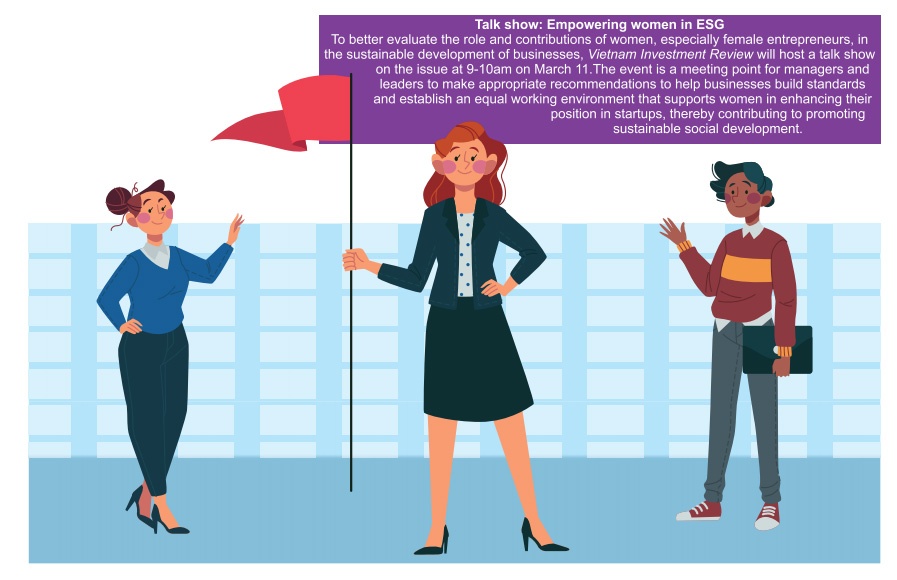 |
Over the past decade, the number of businesses owned by women increased by at least 2 per cent per year, higher than the average growth rate of the business sector. Currently, Vietnam is one of the most developed markets for female entrepreneurs and has the most effective female business network in ASEAN.
“The findings and recommendations will be useful information for management agencies and relevant research organisations to create more better conditions for female entrepreneurs to develop in accordance with their potential and role, contributing to achieving the goals of gender equality and sustainable development of the country,” said Deputy Minister Dong.
Promoting gender equality and empowering women has been included in the United Nations’ 2030 Agenda for Sustainable Development and the work programmes of many international organisations.
The World Economic Forum estimates that empowering women to participate equally in the global economy could help global GDP increase by $28 trillion by 2025.
In Vietnam, a resolution from October 2023 proposed solutions and priority policies to support the development of female entrepreneurs. The national strategy on gender equality for this decade has lso set the goal of increasing the proportion of female directors and business owners to at least 27 per cent by 2025 and 30 per cent by 2030.
The law on SME support and accompanying decrees have also added details on a number of priority policies to support women-run enterprises.
Winfried Wicklein, general director of Independent Evaluation at the ADB, said that SMEs led by women can be a key driver of economic growth in Vietnam as well as across Asia-Pacific.
“Female entrepreneurs are flexible, but also very resilient and persistent. They are also pioneers aiming to create a green production industry, for the health of the community and improving the quality of people’s lives,” Wicklein said. “Many examples of female entrepreneurs succeed in the marketplace and bring renowned Vietnamese brands and products to the international market such as Vinamilk, TH True milk, and Vietjet.”
Mai Kieu Lien, CEO of Vinamilk, has been named among the 50 most influential women in Vietnam by Forbes over many consecutive years. “Most women are only inferior to men in terms of actual muscle strength. Other aspects such as knowledge, morality, and behaviour are not inferior. Women are creating more and more new values here, helping create jobs for society and bringing Vietnamese brands to the world,” Lien said.
Nguyen Quang Vinh, chairman of the Vietnam Business Council for Sustainable Development, added that the role of the women-owned business community was clear in many aspects.
“Aside from the basic role of businesses to create material wealth and contribute to GDP, female entrepreneurs also actively participate in social responsibility issues such as protecting the environment and building an equal working environment, promoting gender equality,” he said.
| Michele Wee - CEO, Standard Chartered Bank (Vietnam)
In nearly 30 years of working in banking and finance-related industries, Standard Chartered Bank has been the longest employer in my career and where I feel leads the charge on diversity and inclusion (D&I) and sustainability in all aspects. I am a big advocate of gender equity and environmental, social, and governance and I am committed to doing everything possible to increase the impact of my organisation and myself in the communities that we bank internally and externally. I am a passionate and committed advocate of D&I. I believe in gender equality and equity and meaningfully operationalise this in my organisation. We have a comprehensive agenda and meaningfully instil this inclusive mindset to all of our employees. We want everyone to bring their true self to work. This supports our ambitions to become the bank of choice, the employer of choice, and continue to invest in the communities that we serve. I have made myself accountable to the organisation as a senior leader who is committed to working relentlessly on this agenda with my colleagues, our clients and regulators. I’m very excited to see the progress being made, which makes me feel even more motivated to accelerate my efforts. Recently, we received an award from the bank’s Asia D&I Council, recognising our team efforts and for going above and beyond in helping to shape a diverse and inclusive workplace not only in Vietnam but also across Asia. Last year, Standard Chartered was also the first bank in Vietnam to achieve the prestigious certification for equity, diversity, and gender equality at the highest level across all industries, reflecting our dedication to driving gender equality, equal opportunities, and fostering an inclusive workplace culture in Vietnam. I am part of the core team on the International Finance Corporation and GEAPP senior women climate leadership network. It is inspiring to me to work with other female leaders to create the space where women's creativity and leadership in climate action are not only recognised but are leading the charge for change. I embrace the challenges of leadership and to me, growth is a constant journey of learning and self-discovery. Learning a little every day to improve the way I lead is also something I strive for. I feel motivated and excited to come to work every day. As a CEO, I’m personally honoured to have been part of the incredible journey spanning 120 years in Vietnam. Embracing our past with reverence, I am excited to lead our team into the future, energised by the opportunities ahead towards prosperity and resilience in the years to come. Nguyen Thanh Huong - Country HR manager, ManpowerGroup Vietnam
Women are currently leading the post-pandemic recovery. The global labour force participation for women stood at 49 per cent in 2018, but now it is over 50 per cent. Yet, there is an urgency to ensure women are thoroughly represented in candidate pools for growth jobs. ManpowerGroup’s Age of Adaptability Report 2024 reveals that women are half of the world’s total working population yet hold less than one-third of managerial and leadership positions. In technology-related fields, women make up less than a third of the world’s workforce despite a global tech talent shortage. Our annual study, “What Women Want at Work” sheds light on the priorities of global female workers. Women in general look for autonomy, flexibility, growth, and advancement, as well as equal pay and recognition for their contributions. They also seek empathic and supportive leaders who understand their challenges and prioritise diversity and inclusion within the organisation. While work-life balance is still important, job security matters more as 25 per cent are anxious about changing jobs now due to economic uncertainty. I have read studies showing that female leaders have different ways to approach a matter as compared with their male counterparts. Brain MRIs also show that men and women use different brain hemispheres to solve problems. Consequently, fostering a workplace that embraces and values diverse perspectives is paramount for business leaders, yielding more innovative solutions and successful outcomes. That is called inclusion. With the baby boomer generation retiring in earnest, attracting and retaining a diverse workforce will shift from a unique initiative to a business imperative. Women will play an increasingly important role in the future of work and employers who can fully leverage their talent are positioned to gain a compounding competitive advantage. We believe in human potential, and we work hard to create an environment of inclusion for all, including female employees. We are recognised consistently for our diversity - as a best place to work for women, inclusion, equality, and disability. Setting ambitious goals, such as achieving 50 per cent female representation in global leadership by 2025, underscores our dedication to gender parity and inclusion. Notably, at ManpowerGroup Vietnam, women presently occupy 75 per cent of senior leadership roles. Recognising the multifaceted and essential role of women in the workforce, organisations can foster environments where they thrive by understanding their aspirations, providing opportunities, and cultivating inclusivity. Tim Evans - CEO, HSBC Vietnam
More than 70 per cent of HSBC employees are female, which is a fantastic reflection of our team. We are blessed to have so many female colleagues who come in every day and give it their very best. They inspire us to be better every day. Their work ethic, their ability to solve problems by working together with other people in the organisation, and their compassion in times of trouble has been a key ingredient to HSBC’s success in Vietnam. HSBC has a culture in which we actively promote diversity and inclusion. This means that every individual, regardless of their gender, race, or religion, is welcomed at our bank without prejudice, and receives fair treatment. All our team members are encouraged to explore and maximise their strengths, helping them to be at their best. Our recruitment processes are such that we welcome all individuals who have the drive, passion and capabilities required for a fruitful career at HSBC. I feel pressure to ensure that HSBC remains a successful and ethical organisation that serves Vietnam and its people, and never stops trying to open up a world of opportunities for all our customers. I was blessed to take over a remarkable team four years ago, and I want to ensure that the next CEO receives an even more amazing team. |
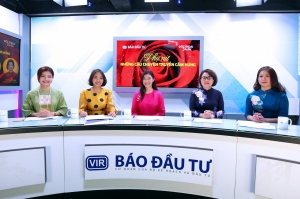 | Investing in women is the smart move Investing in women to help them liberate their inner strength is a smart move as empowered women not only create added value for society but also contribute to a prosperous economy. |
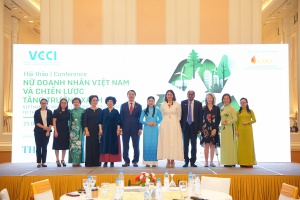 | Vietnamese female entrepreneurs take the lead in boosting green growth On March 25, the Vietnam Association for Women Entrepreneurs (VAWE) held a seminar on female business leadership and green growth with the Vietnam Women Entrepreneurs Council, a part of the Vietnam Chamber of Commerce and Industry (VCCI). |
What the stars mean:
★ Poor ★ ★ Promising ★★★ Good ★★★★ Very good ★★★★★ Exceptional
Related Contents
Latest News
More News
- Tides of Heritage: A Tet speciality at InterContinental Phu Quoc Long Beach (January 20, 2026 | 12:08)
- Muong Thanh launches Lunar New Year gifts inspired by tradition (January 16, 2026 | 16:41)
- The Grand Ho Tram seeks responsible entertainment with pilot casino access (January 16, 2026 | 10:56)
- Ocean Resort by Fusion Quy Nhon launches Lunar New Year 2026 package (January 15, 2026 | 11:11)
- Regent Phu Quoc announces general manager appointment (January 15, 2026 | 11:06)
- Fusion to debut two landmark hotels in early 2026 (December 26, 2025 | 11:46)
- Pan Pacific Hanoi unveils festive season of light and music (December 15, 2025 | 18:22)
- JW Marriott Hotel & Suites Saigon unveils festive initiatives (December 12, 2025 | 15:12)
- Festive magic by nature unfolds at JW Marriott Cam Ranh Bay Resort & Spa (December 11, 2025 | 18:17)
- The Reverie Saigon presents festive programme (December 11, 2025 | 18:15)

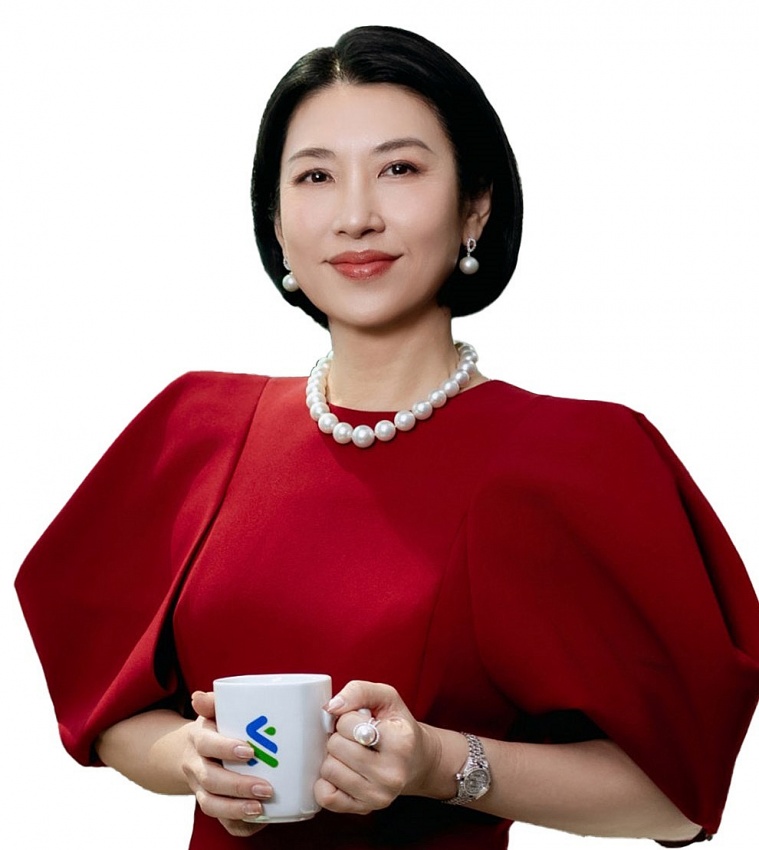
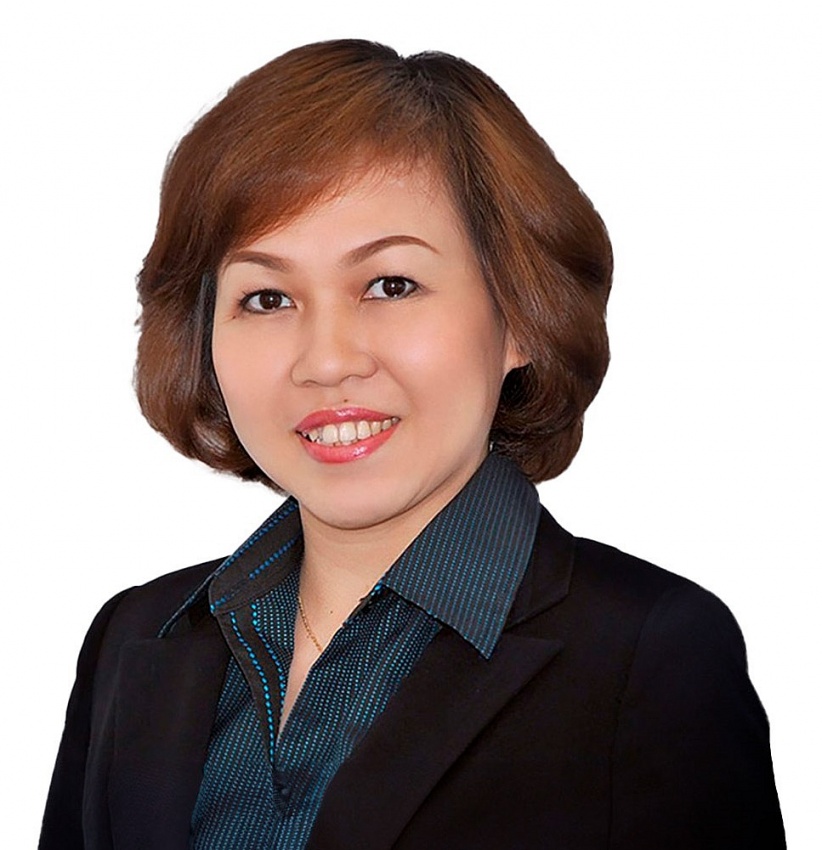
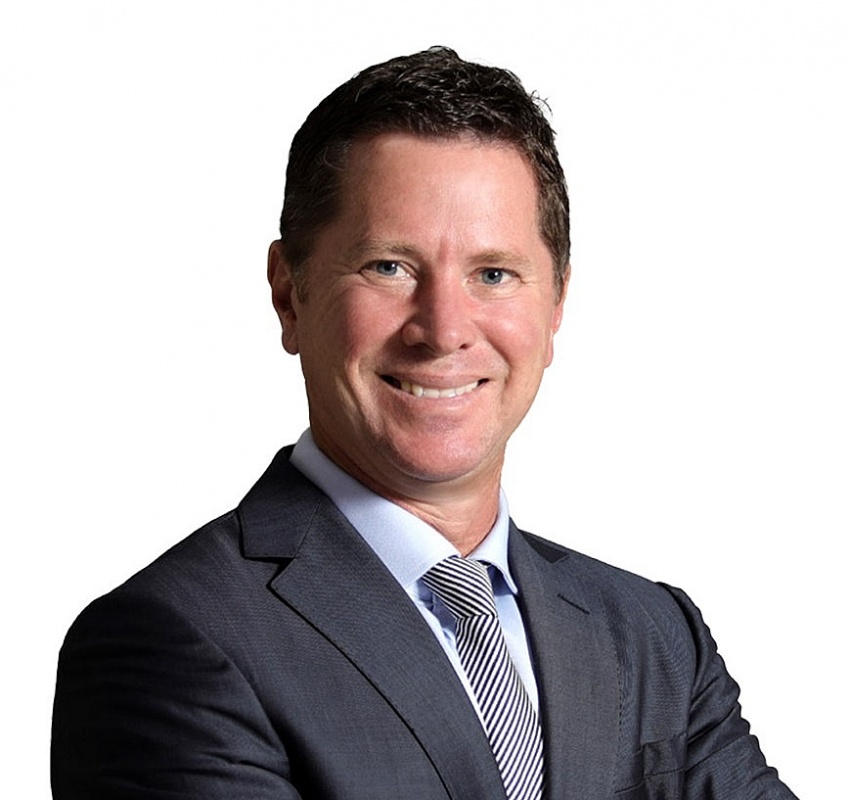
 Tag:
Tag:




















 Mobile Version
Mobile Version